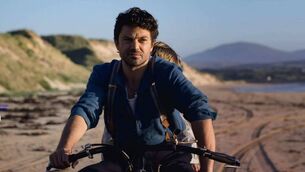Ballina 2023 leaves an enduring legacy of civic pride

The spectacular scene in Ballina on Friday, April 14, 2023, as US President Joe Biden addressed the vast crowd outside St Muredach's Cathedral. Picture: Leon Neal/Getty Images
The focus of this series has been on what we can learn from leaders in different sectors about how we build a better West of Ireland. A recurring theme has been the importance of changing how we think about ourselves and our place in the world as part of that process. It is apt, therefore, that for the final article in the series, I talk with Lisa Hallinan, the Project Manager of Ballina 2023, to understand how cultural projects – in this case a major commemoration – can be used to breathe new life and new spirit into communities.
Ballina 2023, marking 300 years since the formal establishment of the town, has been a great success. The project set out, Lisa tells me, “to increase civic pride and create new narratives around the town, as well as ensuring there were sustainable legacies". It was, she says, “a platform for Ballina to celebrate itself and to look at how the people of the town could be brought together". With its community-led approach, combined with the delivery of a fantastic year-long series of events, it has, as people everywhere I talk to say, put Ballina on the map.
What can we – and those planning similar cultural events and festivals – all learn from this experience? What can we learn about changing the way we speak about our own place; about building capacity from the ground up; about supporting and developing people; and doing it all in a celebratory and engaging way?
Lisa Hallinan is the perfect person to address those questions. She saw a job advert back in 2021, liked how it described the project, then applied for and was appointed Project Manager in May 2021. An Enniscrone native now living on the other side of the Bay, she expressed a Killala Bay perspective on the town: “If Ballina does well – the whole area does well.”
She brought professional focus and an expertise gleaned from work on festivals and cultural events all over Ireland. For her, it was a “great opportunity to come back – as someone who had been working away for many years – and do it on my own doorstep”.
How did she do in the role? It’s a simple question to answer: if you say her name around Ballina, the praise echoes back.
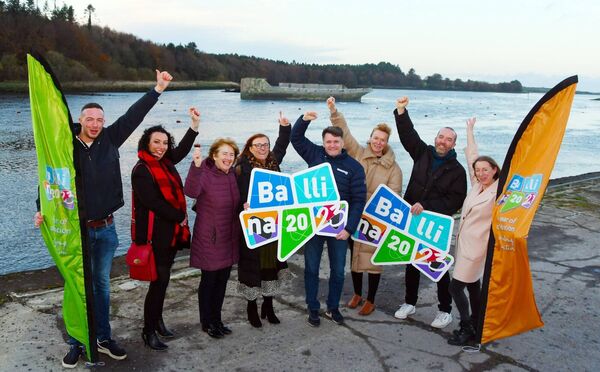
Lisa doesn’t hesitate in response: “The aspiration was certainly about increasing civic pride.”
This was a clearly stated objective right from the outset, based on recognising some key things. First, the town of Ballina can be hard on itself; second; because of the geographic location and economic realities that readers know well, it has an independent and sometimes even an isolated sense to it.
The project wanted to address all that but recognised that had to be done an authentic way. Ballina 2023 was not, Lisa tells me, a ‘rebrand’ of Ballina, it was an attempt to “attest to the identity of Ballina in an authentic and not manufactured way". It was a project that was based on the real experience of people in Ballina now, of the communities and people that make it up, and of their hopes for a better future together. The project and its programme was, therefore, not imposed on the town based on somebody’s ‘vision’. The vision and programme for Ballina 2023 was shaped by the people of Ballina in 2023.
So right from the off “the project worked hard to give every community the opportunity to be involved”, making sure that all communities in Ballina got a chance to shape both its approach and its programme of activities from the ground up.
The philosophy behind this method, Lisa tells me, is a community development one. Ballina 2023 was about engaging the community and communities of Ballina to come together, develop ideas, and then deliver a programme of events which reflected the wide variety of experiences in the town.
Lisa also tells me that authentic community engagement was a bigger ambition than delivering the headline elements of the programme, important and all as they were. It also helped to address any cynicism of the type that projects like this can attract, as it was being driven by conversations and contact with people on the ground. For Ballina 2023 consultation with the community was not a necessary process: it was the heart of the whole endeavour.
The first thing Lisa picked out when asked this question was working in partnership and working with a great team. The original idea was Cllr Jarlath Munnelly’s, and the Council put in place a cross sector steering committee of local stakeholders; Mayo County Council, the Ballina Municipal District, organisations like Moy Valley Resources and the Lions Club, Ballina Chamber and Mayo North.
Since 2021, the steering committee has met every second week and the tightness and spirit of that group was crucial. By having the Council so heavily involved, things that would have seemed hard to do otherwise, got done quickly and efficiently.
By collaborating with existing community organisations and volunteers, much of the spirit and expertise that has been noticed in Ballina in recent years – whether in organising the successful ‘Other Voices’ event or in initiatives like the Community Clean Up – could be built upon in the work of Ballina 2023. Supplementing this with local professional expertise as needed or developing existing capacity locally really helped to elevate the programme. Lisa also feels that "a strong investment in good communications complements community engagement and programme development greatly".
Good governance was also key – a clear structure, regular meetings and reporting with transparency about what was being done. These things, Lisa tells me, are not just good practice, they also produce better outcomes as putting them in place requires all concerned to think through clearly what they are trying to do and why.
Allied to that was the wider volunteer team. What Ballina 2023 did was to provide volunteers with a platform for their civic mindedness and also support them in training and development. That led to the volunteers growing in confidence, stature and in number as the year went on.
One of the outcomes of this, Lisa tells me, was being able to turn out 200 volunteers at three days’ notice for the President Biden visit, but it wasn’t just about the number of volunteers, it was about their collective capacity to do the town proud and in such an efficient and professional way. It is also very important to acknowledge the significant contribution from volunteers and sponsors, whom Lisa acknowledged warmly, as well as institutional partners and funders like the Arts Council.
As regards individual events, when you are a project manager being interviewed for a piece like this, there is always the problem of which ones to pick. So specific references below are my choices from the very many examples Lisa shared with me.
To have a programme which is an overall success, Lisa explained, it is good to have a mix of high visibility events mixed with community oriented elements. For anyone planning such a programme anywhere in the region, Lisa points out that the preferred approach is moving in the direction of engaging with your audience and building events around them.
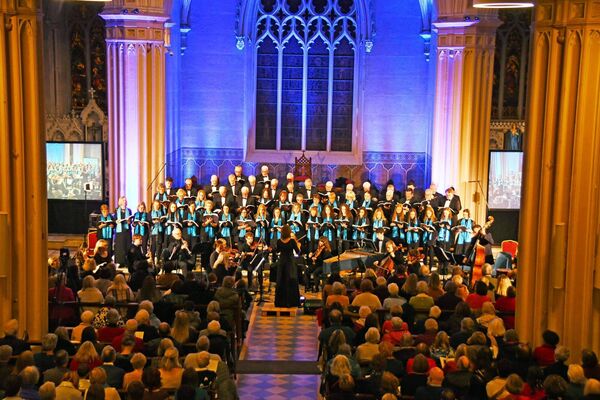
So to develop a great programme – especially over the course of a year – you need to carry out genuine consultation: identifying what already is done; what can be developed; what are possible new events to meet the needs raised in your consultation, making sure that the tone of those events are relevant to the place and suitable for different parts of the year, with the RHA West art exhibition and the amazing performance of as two great examples of that.
You should seek out partnerships with similar values, share your ambition and then you will be surprised how easily others can engage with you. A good example of this in Ballina 2023 was how the Macnas event played into the old tradition of the mardi gras in Ballina and was made possible through strong partnership and good sponsorship.
The Dream Garden in the Jackie Clarke is a great example of a project which built on an existing resource – that beautiful garden at the back – and amplified it. With over 5,000 visitors of all ages, this lovely project is also a good example of what is called placemaking, the development and use of public spaces in a vibrant and community focused way, of which the latest development in Ballina is the Market Square Plaza and Military Barracks in the town.
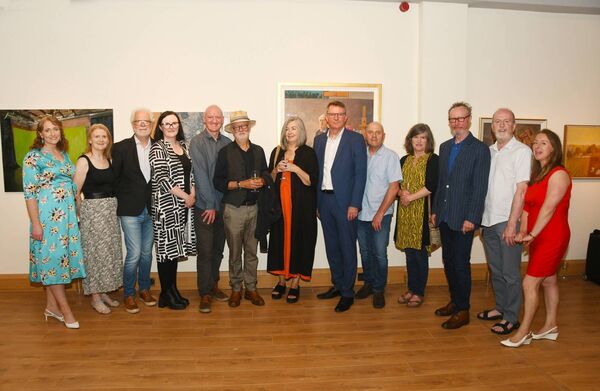
Cairdeas le Chéile was a seminar with Mayo County Council that discussed racism, “which”, Lisa tells me, “was an important counterpoint to some of the other events, which were by their nature celebratory". This was an example of using Ballina 2023 to build community discourse in a deeper and more significant way, facilitating “a multitude of voices that help a community to work together for the greater good of the town” and as an example of “the community coming forward to suggest and produce events”. Other examples of such important events were the Parkside event organised and led by the Traveller Community and a ‘Day Out for All’, a day of inclusive social events for members of the public and the LGBT+ community.
There were so many others. Working with Ballina Salmon Festival was a particular highlight for the Ballina 2023 team; all of the great Mayo themed events – including Mayo Day 2023 – which were hosted with Mayo County Council; as well as all the fun of the various activities that will come to mind to readers as they think back over the year.
And, of course, the address of President Biden was the ‘cherry on top’. What Ballina 2023 did was provide a context and the infrastructure to make the case that the President’s public address in Ireland should and could take place in Ballina.
There has been so much good said about the visit and its impact that there is no need to amplify it here, except to emphasise the authenticity point that Lisa makes so well. The town looked so amazing that day because the town does look great. Stand at the cathedral and you will know it. What the Biden visit – and Ballina 2023 – did was simply shine some light on it. They did it very well though, didn’t they?
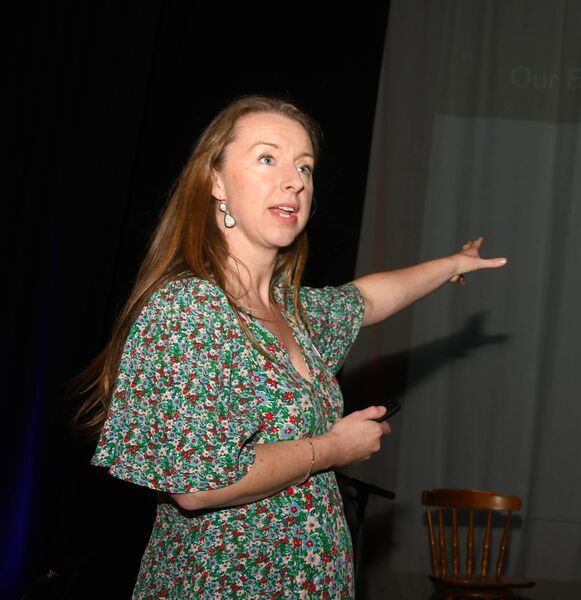
There was long a view in Ireland that the turn around in our economic fortunes came about after Italia 90, as if success at a soccer tournament could change the realities of the world.
Ballina 2023 cannot change the feeling that there has been under-investment in the town, but it has done much to generate dynamism and to build civic pride and sense of the town’s place. Lisa is clear that what happens arising from that is for the people of the town to decide and determine – that, not Ballina 2023, is what will create the ‘brand’ of Ballina into the future.
Lisa explained a particular way all the work will benefit Ballina into the future. Ballina 2023 has helped to develop a cadre of people within the town who know how to run projects and access public and other forms of funding – all of which will be used in multiple ways to benefit the town.
This year has also helped enhance technical skills in marketing and communications, in finance and fundraising, in mentorship and volunteerism, in writing strategy and policy documents and grant applications, in community engagement and consultation, in event management and partnership development, and in advocacy. These are skills and abilities of great value in both the world of work and the work of life. The high standards which were seen in Ballina 2023 will percolate and permeate throughout the life of the town and – through great marketing – signal to the rest of the world that this is a place that can do all these things well. And my own measure of that is if I mention Ballina now to people in Dublin the reaction is considerably different than it was a year ago.
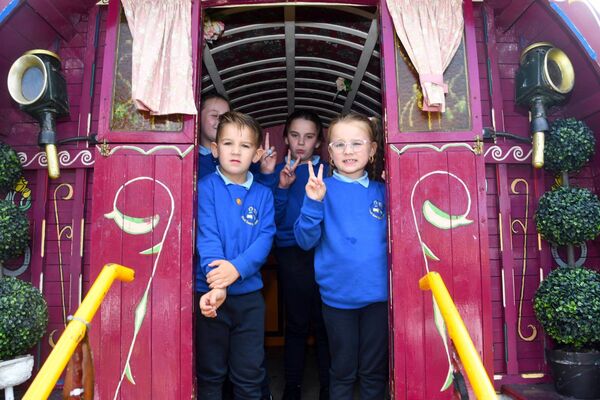
You can list out events and list numbers of attendees, and the project will do all that in its final report, but for Lisa, the question is of impact. So, an event with 30 people present, where important things were discussed and connections made can be more important than a numerically larger event which doesn’t change minds or capture hearts. It is only in five or 10 years’ time that we will see the full results, but anyone with a heartbeat can sense the benefits of Ballina 2023 already.
The lessons are clear. For such projects to really work, they have to have a clear focus on the goal – in this case to raise the spirit of and pride in Ballina – and then engage with the community in putting together a professional programme to deliver on that goal. That must reflect the lived experience of the community, and not be imposed as a ‘best-practice’ model from the outside.
Community engagement is key. Getting people away from screens and talking about something positive they can do together for their wider community is the whole point.
You need a great team, good governance and a proper structure, which empowers your communities and your volunteers to come up with great ideas and then deliver them. This isn’t just a thing you do to satisfy funders but is a value in itself, as it causes the questions that need addressing to be asked, and so generates wider community confidence.
And don’t worry about the rain! As Lisa said, the bigger challenges on the weather front for Ballina 2023 came in the summer. If you worried about rain, you’d never open the door.
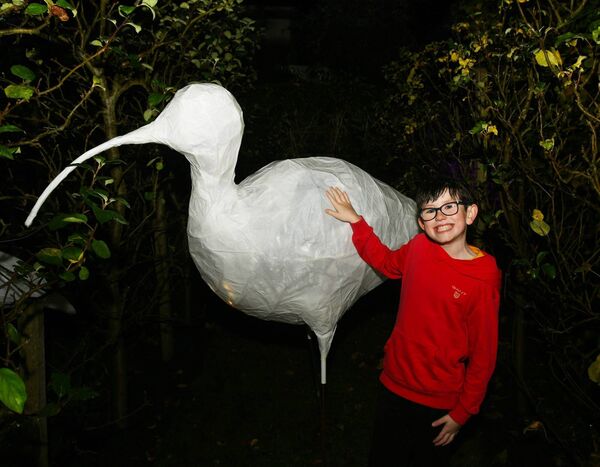
Ballina 2023 is ending. But what comes from it is the question Ballina 2023 has been asking all year while providing the means to answer. What Lisa Hallinan does around Ballina in 2024 will be watched closely by those who have admired her leadership in Ballina 2023.
As this series concludes, I would like to thank all my interviewees – Pat O’Donnell, Enda Kenny, Georgia MacMillan, Monica Morley, Lorraine Burnell and Lisa Hallinan – for giving so freely of their time and expertise. My regular column next week will have some thoughts on the common themes and ideas that emerged from the series.



